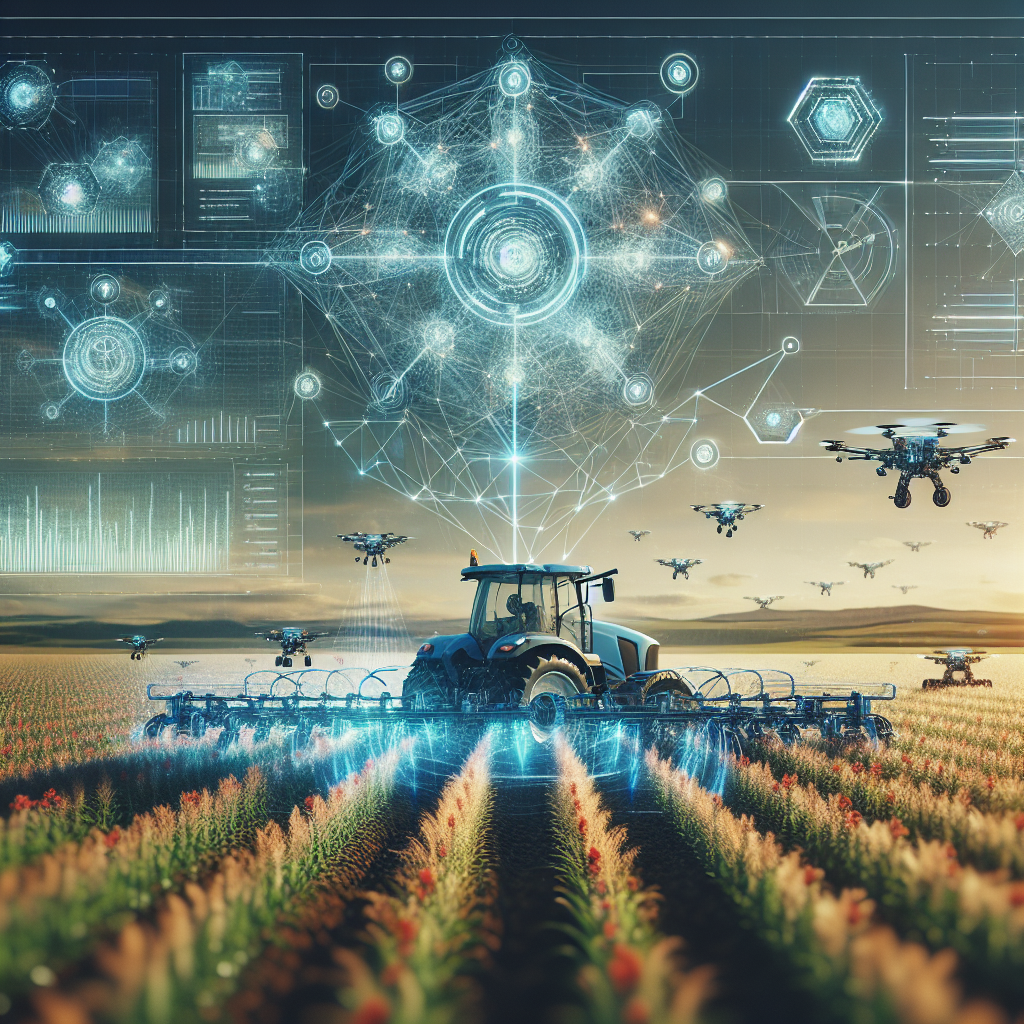The future of AI and machine learning in agriculture is bright and promising. As technology continues to advance, the possibilities for using these tools to revolutionize the way we farm are endless. From increasing crop yields and reducing waste to improving sustainability and efficiency, AI and machine learning have the potential to transform the agricultural industry in ways we never thought possible.
One of the most exciting developments in the field of AI and machine learning in agriculture is the use of drones. Drones equipped with high-resolution cameras and sensors can fly over fields, collecting data on crop health, soil conditions, and weather patterns. This data can then be analyzed using machine learning algorithms to provide farmers with valuable insights into how to optimize their operations. For example, drones can help farmers identify areas of their fields that are experiencing water stress or nutrient deficiencies, allowing them to take corrective action before it’s too late.
Another area where AI and machine learning are making a big impact in agriculture is in the development of precision farming techniques. By using sensors, GPS technology, and machine learning algorithms, farmers can now collect real-time data on their crops and make more informed decisions about when to plant, irrigate, and harvest. This not only helps to increase yields and reduce waste, but also allows farmers to use resources more efficiently, leading to cost savings and environmental benefits.
AI and machine learning are also being used to develop predictive models for disease and pest management. By analyzing historical data on crop diseases and pest infestations, machine learning algorithms can help farmers predict when and where outbreaks are likely to occur, allowing them to take preventive measures before they become a problem. This can help reduce the need for harmful pesticides and other chemical treatments, leading to a more sustainable and environmentally-friendly approach to agriculture.
In addition to improving crop production and sustainability, AI and machine learning are also being used to revolutionize supply chain management in agriculture. By analyzing data on market trends, consumer preferences, and weather patterns, machine learning algorithms can help farmers and food producers better predict demand and optimize their production and distribution processes. This can help reduce food waste, improve food quality, and ensure a more efficient and reliable food supply chain.
As the use of AI and machine learning in agriculture continues to grow, there are bound to be challenges and obstacles that need to be addressed. One of the main concerns is the potential impact on jobs in the agricultural sector. As more tasks become automated and AI-powered, there is a risk that some jobs may become obsolete. However, there are also opportunities for new jobs and skills to be created in areas such as data analysis, software development, and robotics.
Another challenge is the need for proper data management and security. With the increasing amount of data being collected and analyzed in agriculture, there is a risk of data breaches and privacy violations. Farmers and food producers will need to implement robust data security measures and comply with regulations to ensure that sensitive information is protected.
Despite these challenges, the future of AI and machine learning in agriculture looks promising. By harnessing the power of technology to improve efficiency, sustainability, and productivity, we can create a more resilient and sustainable food system for the future.
FAQs:
Q: How are AI and machine learning being used in agriculture?
A: AI and machine learning are being used in agriculture for a variety of purposes, including crop monitoring, precision farming, disease and pest management, and supply chain optimization.
Q: What are the benefits of using AI and machine learning in agriculture?
A: Some of the benefits of using AI and machine learning in agriculture include increased crop yields, reduced waste, improved sustainability, and more efficient supply chain management.
Q: What are some of the challenges of using AI and machine learning in agriculture?
A: Some of the challenges of using AI and machine learning in agriculture include potential job displacement, data security concerns, and the need for proper data management and compliance with regulations.
Q: How can farmers and food producers implement AI and machine learning in their operations?
A: Farmers and food producers can implement AI and machine learning in their operations by investing in drones, sensors, and other data collection tools, and by partnering with technology companies that specialize in agricultural AI solutions.
Q: What is the future of AI and machine learning in agriculture?
A: The future of AI and machine learning in agriculture looks bright, with the potential to revolutionize the way we farm and produce food. By harnessing the power of technology, we can create a more sustainable and efficient food system for the future.

